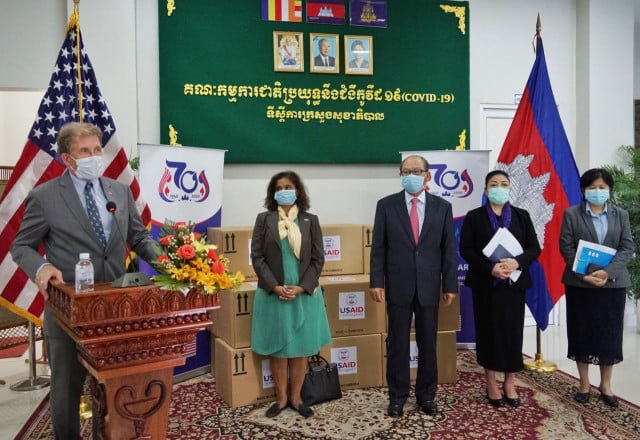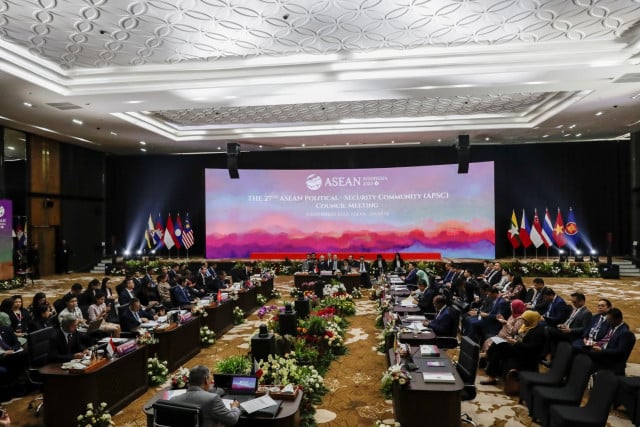Leza Challenges Engineering’s Gender Bias
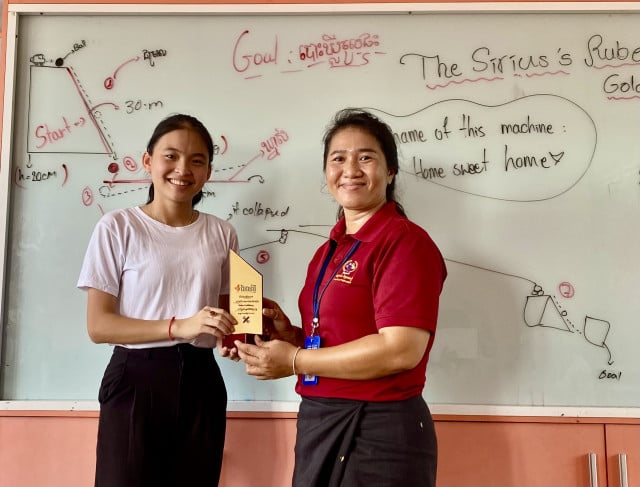
- By Sao Phal Niseiy
- January 31, 2023 8:35 PM
CANBERRA--Growing up in a patriarchal society, like many girls, Sorn Leza used to be told that women and girls are not fit for engineering jobs. However, through education and experience, she realised that a career as an engineer has nothing to do with gender.
As a recent high school graduate, Leza, 17, has made her way to Union College in New York where she will undertake an undergraduate degree in mechanical engineering. She hopes pursuing her passion can change gender inequality in the engineering sector, inspiring other young women and girls across Cambodia to dare to dream big and choose science majors.
An unexpected journey to study in Phnom Penh
At the age of 11 after finishing primary school, Leza was awarded a scholarship to study at Liger Academic Leadership Foundation in Phnom Penh. The journey to study in the capital was unplanned and unexpected but without it, she would not be where she is today.
"To be honest, my story of getting the chance to study in Phnom Penh was unplanned and a funny story," Leza said.
"I didn't know it was a scholarship when my former teacher applied for it on my behalf without my knowledge. He then told me that two students would be recruited from my school through the scholarship examination, and I then just gave it a try."
More than 50 students were competing for the two scholarships. Through rigorous testing, only three could make it to the final round and Leza was one of them. The final round was the hardest. Each student was required to interview their villagers to find out what their daily challenges were and what could be done to help them.
"After the interview, we were required to do the final presentation," Leza recalled, adding that conducting interviews with the elderly in her community was arduous considering that she was just 11 years old back then.
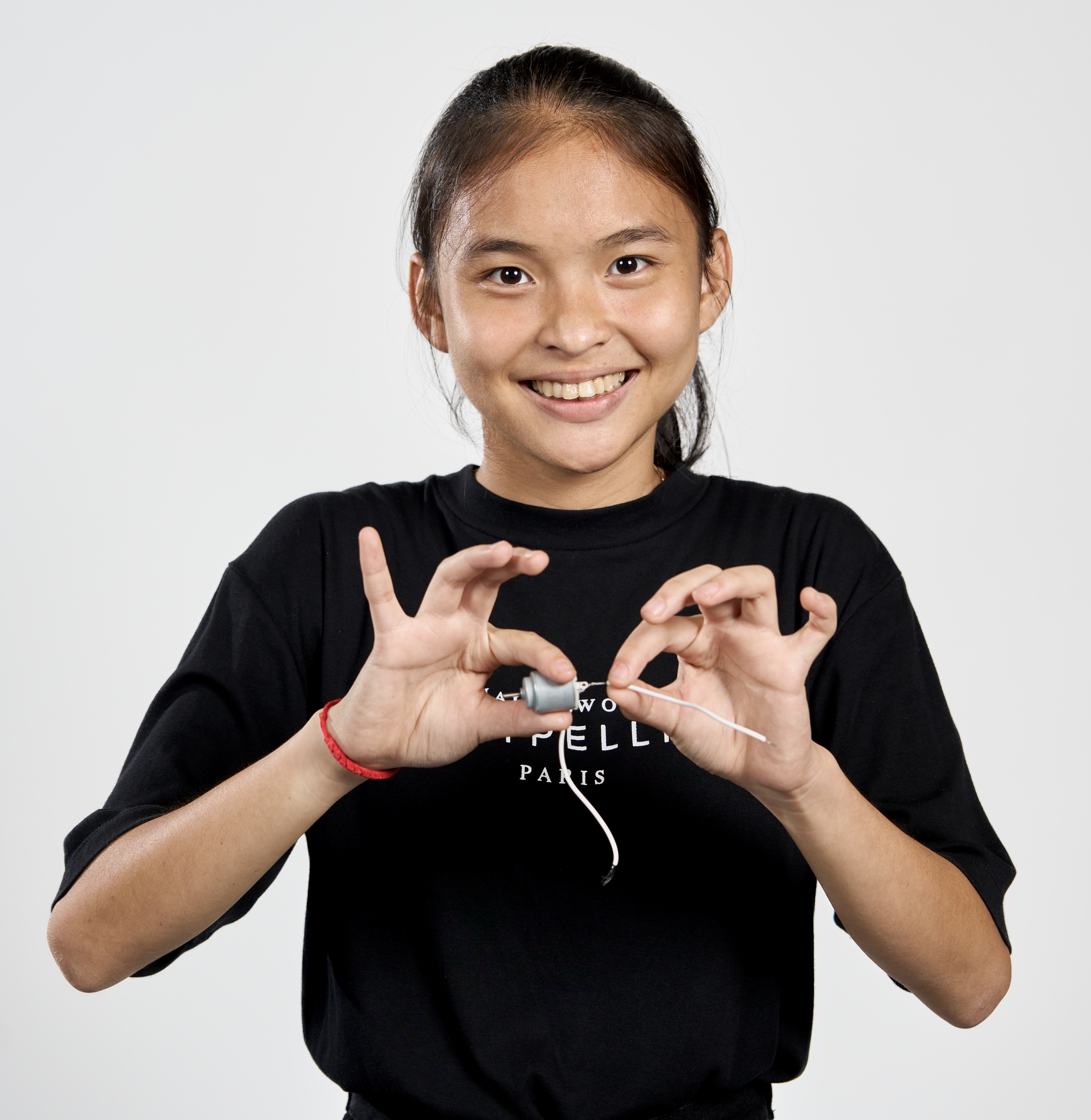
“Interviewing my villager was new for me. Normally, students at that age dare not even get out of the classroom, let alone go to meet elder people and interview them. Luckily, with strong and consistent support and guidance from my parents — both of whom are public servants — I could ultimately do it well," she recalled with a big smile on her face.
"The biggest challenges my villagers raised were the needs of waste management, roads and toilets, and I brought up these issues in my presentation," she said.
The result was a six-year scholarship to study at Liger Leadership Academy.
Leaving her rural provincial hometown to live and study in Phnom Penh away from her parents was not easy for 11-year-old Leza. It came with many challenges and struggles.
“When I commenced my studies at Liger, I was more excited than sad. Other students cried because they were homesick,” Leza said. However, she still had to deal with tough problems, especially with English proficiency.
"Because of my poor English, I could not talk much in class, and what I knew was just saying 'greeting'. But seeing my silence, my teacher asked whether I was homesick. After that, I tried to learn the language daily. I could catch up and do well."
Over six years studying at Liger, Leza was able to do more than just enrich herself academically. She left the classroom to carry out projects annually as required by the school to help students acquire more practical knowledge and skill.
With this effort, Leza built up her skills and knowledge academically and socially. What makes her stand out is her ability to work and live independently, her decision-making and self-discipline as well as her financial management — all of which are critical yet difficult for many people her age.
"I can learn to live by myself without my parents. I learn to make my own decision, especially regarding what to do more or what I should continue to study,” she said.
“But of course, whatever my decision is, my parents always support me. One more thing, I believe is important too, is financial management.”
Without the scholarship to spend six years at Liger Academy, she would have had different opportunities and future.
“Toys I played determine what I wanted to pursue”
Girls are usually expected to play with dolls while boys are expected to play with remote-controlled cars or other electrical devices. However, Leza said she liked playing with the cars and fixing or renovating old things from a young age.
Doing so allowed her to understand more about herself and especially what she loved when it came to choosing a college major and career path.
“When I was eight or nine years old, I began playing with remote-controlled cars and I enjoyed finding things to renovate such as making electric motors and creating remote-control boards," she recalled.
She said engineering is not something people regard as suitable for women and girls and that she hardly heard about engineering studies when growing up in her community. This made girls like her rare when choosing a major. It also failed to unlock their potential in science studies despite having strong passion and affection.
"When I went through an interview, I told them I liked playing with remote-controlled cars and fixing things. But when they asked what I wanted to do in the future, I told them I wanted to become a dentist as my parents also wanted me to do that,” she said.
“This is because not many people talked about women as an engineer in my village and I also didn't know what it was.
"But when I came here [Liger Leadership Academy] and had a computer in my hand, I could do research and realized that this career doesn't depend on gender."
Recalling her childhood, Leza said her father was the most important figure when it comes to following her dream and passion. Sometimes, she added, her father taught her to use tools and fix parts of a bicycle.
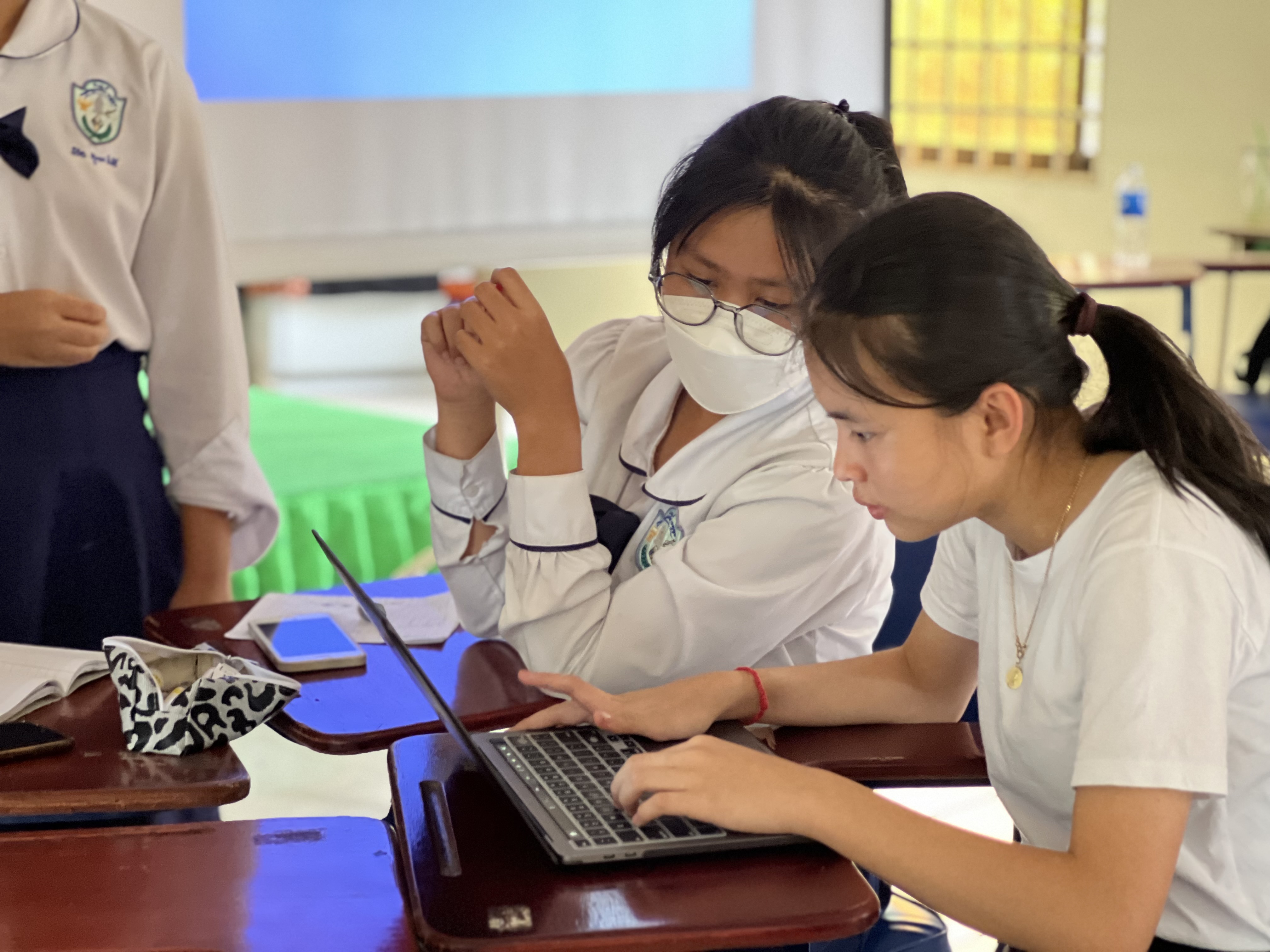
"I could say my dad inspired and motivated me the most. Girls like me always play with dolls, but I didn't like it at all. My mum also bought them, but my dad and I also discreetly bought remote-controlled cars.
“He also set a condition that I would get such a toy when I got the first rank in my class. I know my dad understood I should not play with such toys, but for some reason he allowed me to play with them."
Leading projects to promote engineering for women
Over the past years at Liger, Leza built up different skills — one of which is leading projects. One of the most important projects she leads is "Engineering for Girls," which was launched in 2020 when she was in grade 11.
It is more than just a project to help her develop skills and build up confidence. It is an opportunity to help advocate and encourage girls who study in high schools to learn what is best for them when choosing a major.
“My first project focused on girls who study in grades 7 and 8 at Roteang secondary schools in Phnom Penh, enabling them to learn both hard and soft skills related to engineering,” Leza said.
“During the workshop, participants were required to create a fan using any available materials they could find around their classrooms, and we provided them with just an electric motor.”
But what surprised her the most was that these girls had a different life from hers and could not have an opportunity to figure out whether they have a passion and talent in science studies.
“I always had a chance to play with remote-controlled cars and can renovate things since I was young. That is why I still believe that such a project will be beneficial for them to see their future.
“When they reach grade 12, they could not know what they like if they are not given a chance to try this," she added.
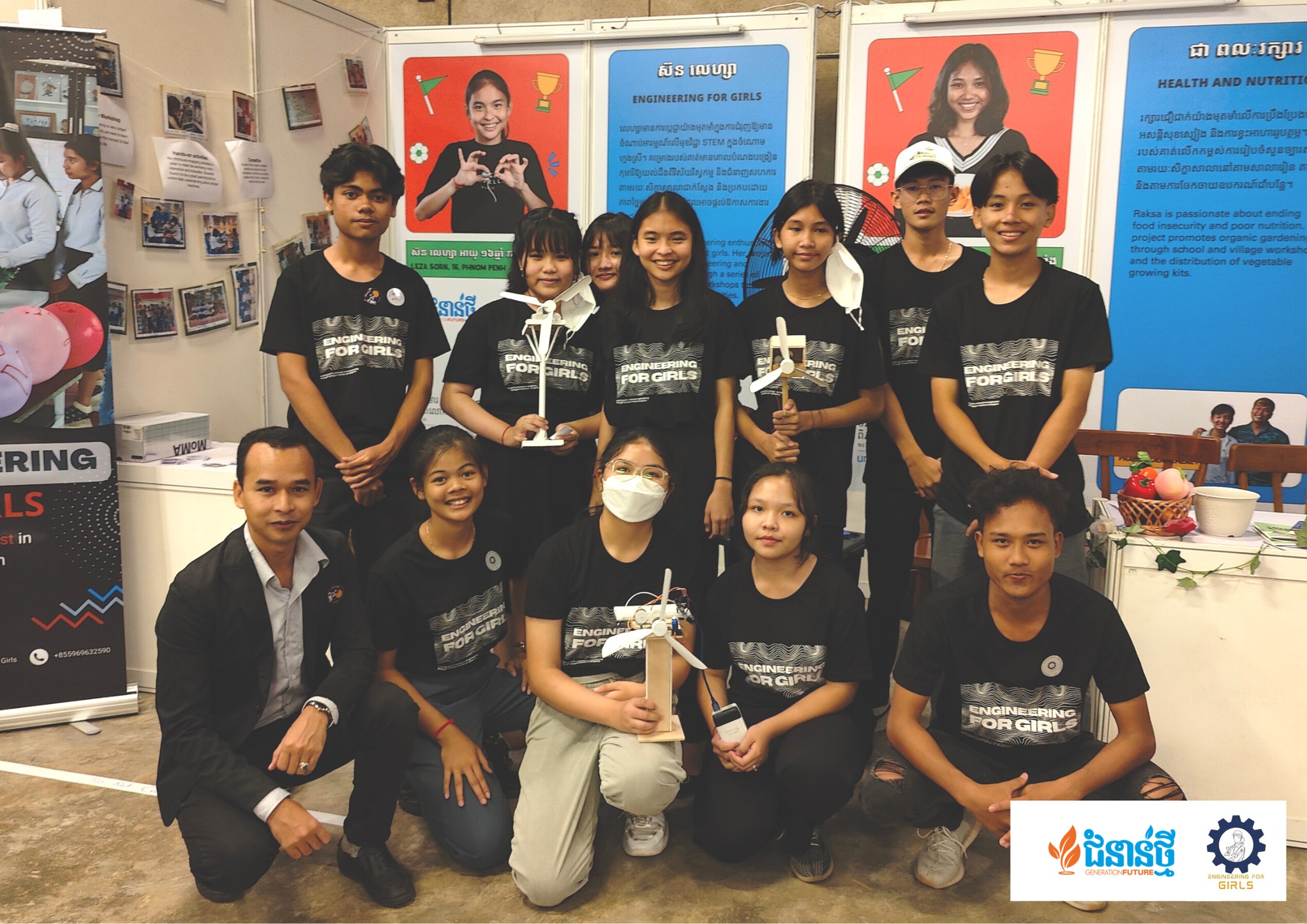
Engineering jobs just need a brain
With the strong potential and positive outcomes, Leza’s project could receive funding from UNICEF under the "generation future program," which aims to support "young Cambodians with big ideas for change to transform their potential into action and achievement.”
With the funding, Leza was able to scale up her project to reach different provinces and expand the duration of the workshop from half a day to six weeks, which ran from August to November 2022 and covered schools in Phnom Penh and Kampong Cham province.
She said her project doesn't aim to push all students to choose to be an engineer but instead aims to provide an opportunity to earn practical experience and find out whether engineering is what they would like to pursue.
“Those students could see the false perception toward women and girls in the engineering field and in the meantime, they could see me, a young girl, as an advocate for women and girls. They also are aspired to make an impact on other girls. I remember they told me that I am their idol. That gives me the power to keep going," Leza said, indicating that two students whom she mentored have been assisting her in undertaking her project.
"The two students requested an opportunity to assist me as they wanted to help because they want to learn from me about project implementation. They said they love engineering and want to be the engineer in the future."
When asked if her project could change the stereotype about women and girls in engineering, Leza said she doesn't seek to change older people's perceptions but only to inspire other girls to dare to follow their passion and fight for what they love.
“What I can change is the perception of girls and women. What I can make them understand is the career is for everyone. We have the technology now so what we need is a brain. So why do we keep upholding such thought."
Asked about her own experiences deciding on a major and a career, she said she encouraged young girls to spend more time learning about themselves and finding a purpose for what they want to do.
"When we focus on ourselves and our heart while omitting other people's opinions and factors that scare us, we will find the path we love for our whole life. We need to think the job we choose is something that makes us happy for our whole life; it is not about working for money, for personal gain or for parents,” Leza said.
"For those who like physics or math, they should give themselves time and ask themselves why they want to be engineers and what they can do to help the community."
Journey to study in the US
With her strong determination and high academic achievement, Leza is preparing to study mechanical engineering at Union College in the United States. She has been taking a physics course so that she will be better prepared.
" I am extremely elated and thankful for the opportunity. When I applied for the scholarship, I trust I could make it because of my high score and I was recommended by my school," she said.
"But even if I could not make it, I remained hopeful that I could find other opportunities such as studying in Thailand or Singapore."
Leza said her biggest concern was getting sick despite living away from her family and being able to take care of herself independently. Using the English language and her ability to catch up with her studies in a foreign land also make her anxious.
Liger Leadership Academy’s principal, Caroline Bell, expressed her strong confidence that Leza will be successful in her US studies.
“Leza is one of the top students academically and that is due to her not only academic talent but also very much in part to her determination. She is someone who works extremely hard toward her goals. A lot of her successes are built on her determination and work ethic,” said Caroline.
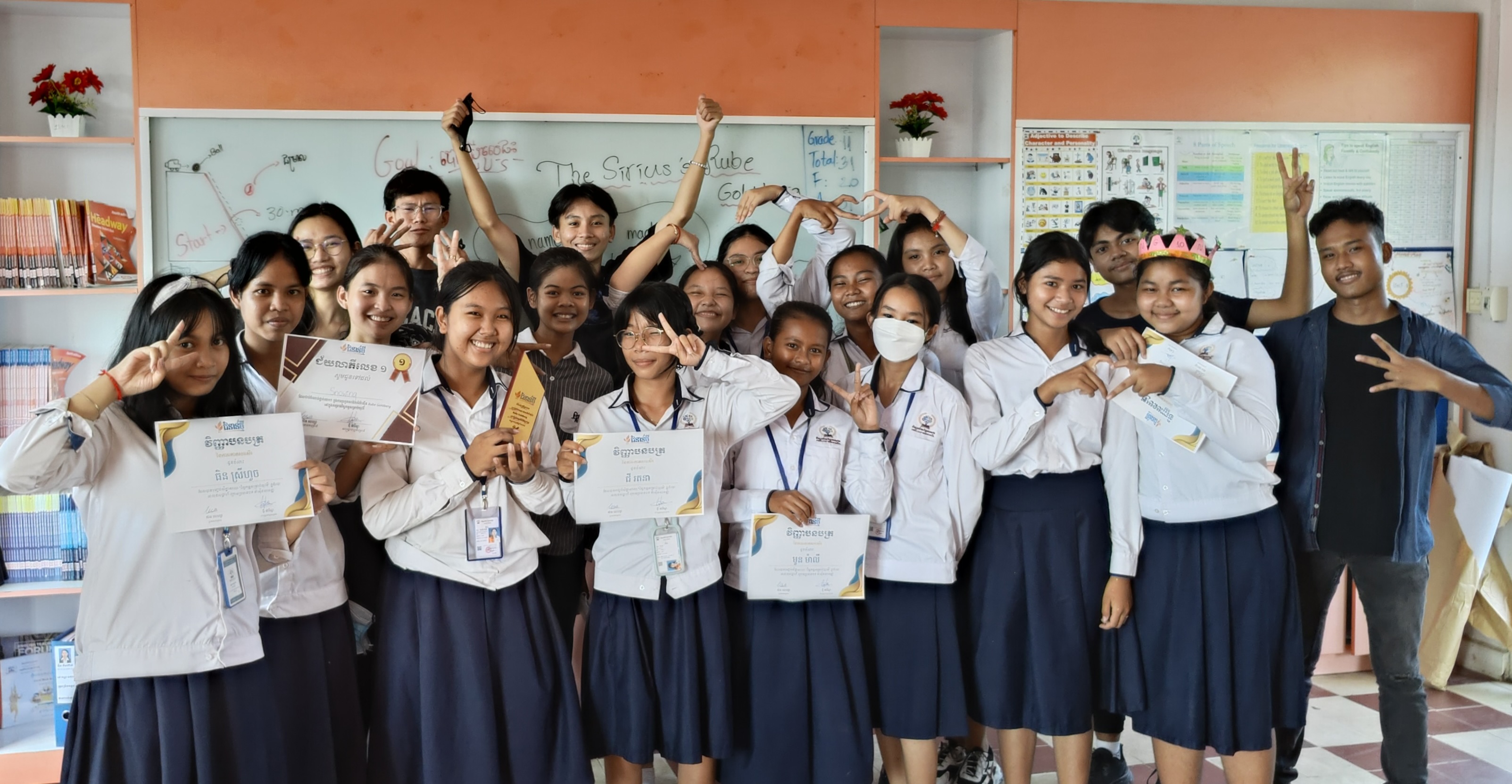
She went on to explain that at Liger Leadership Academy, students who are recommended to travel internationally for universities are those with a good academic, social, environmental and emotional fit.
“So, we are very confident and optimistic about Leza transitioning to the US. She is a very confident girl, and she is very talented. She has a great family behind her and great friends,” Bell said.
“Giving back to our society”
Although Leza doesn't have specific plans after four years of undergraduate studies in New York, she said becoming an agent of change who can give back to the community, society, as well as the nation, remains a part of her spirit as a student at Liger Leadership Academy.
“Whether continuing my studies or starting a job as an engineer, is not sure for me for now, but what I am sure of is I will come back to help my country,” she said.
“Although I don't know how, I am confident that I can make an impact on my community and society. The most important thing is promoting the engineering sector and doing more to develop a market related to this field. I can't make a big impact on the whole of Cambodia, but I am sure that a mall positive impact on my society gives me a strong satisfaction,” Leza said.
She hopes also to develop the electric vehicle industry, which is environmentally friendly for the planet.
"My dream is to see our country move to high tech and have an advanced engineering sector. I want Cambodia to be able to manufacture and innovate our products just like other neighbouring countries. As I like remote control cars since a young age, I want to take part in developing the electric vehicle industry. Other countries can do it, why can't we," Leza stressed.
Leza’s principal, Caroline, agreed that students at Liger have been taught to make impacts on their respective communities.
“This is underlining goal of our school is to empower Cambodians to notice and identify where and which the communities can be improved, and then work together to build community power around that,” she underlined.
“And I do think this is incredibly important because the future for these young people is uncertain unless they learn to communicate and collaborate and come together around some of these tricky issues. There will be a different future if they do that.”






